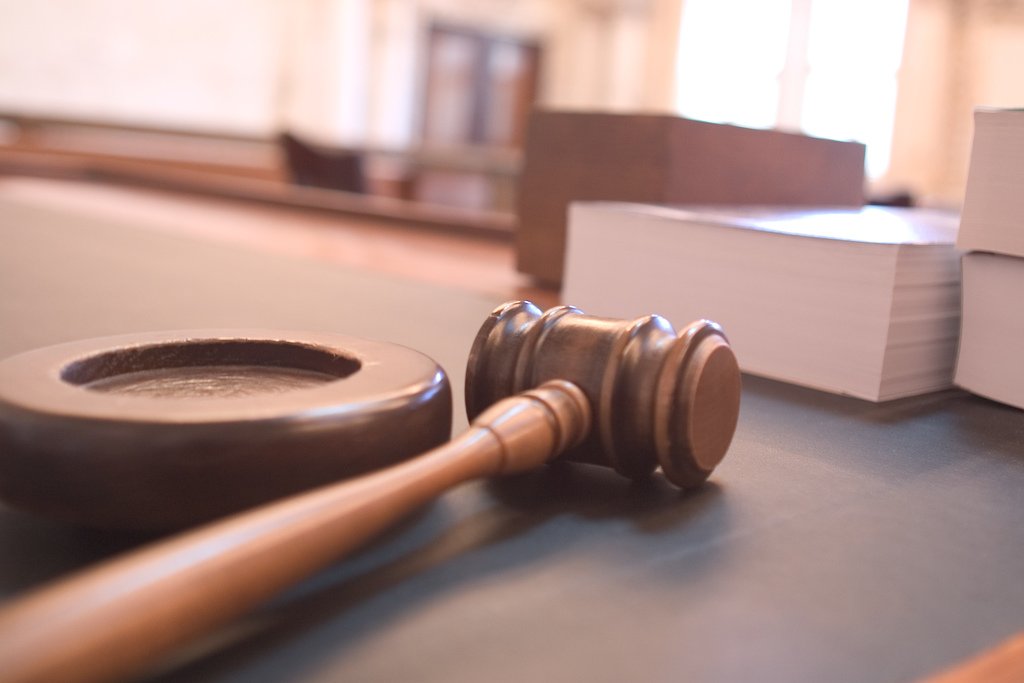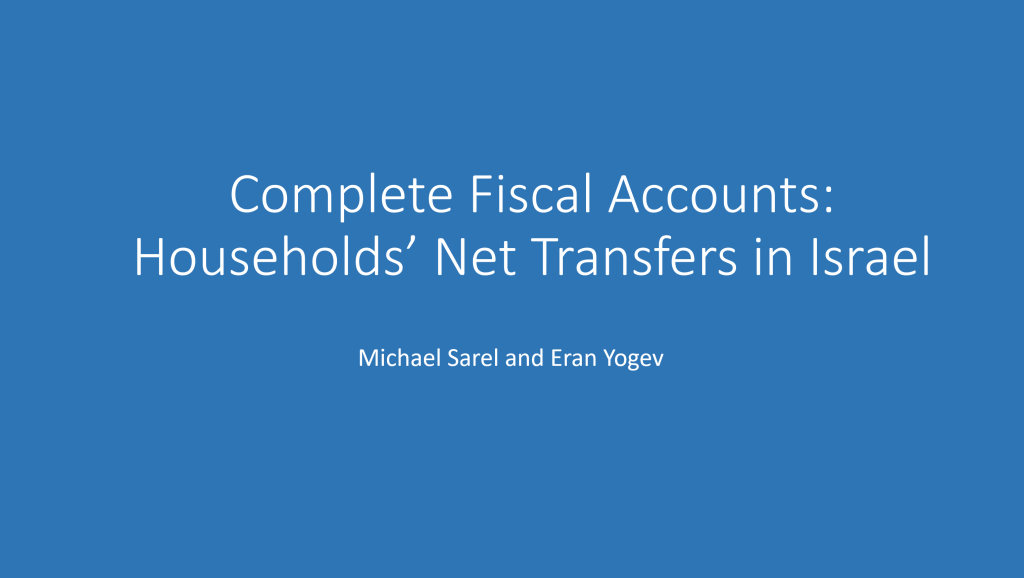A Comprehensive Guide
Like all liberal democracies, Israel needs a strong court and independent judges who will guard the rule of law, good governance, and civil and human rights.
In the past decades, however, the Supreme Court has empowered itself in a manner that completely violates the balance between government branches. In a series of decisions, the Supreme Court has changed the rules of the game and arrogated for itself jurisdiction which it was not given, some of these being exceptional by international standards. Against the basic concept of rule of law according to which the Court judges according to the rules set by the legislature, the Israeli Supreme Court has designed its own rules, and unilaterally taken unauthorized power, without any public legitimacy. In parallel, the Court has adopted the position that “everything is justiciable”, transforming itself into the sole adjudicator in almost all public and political controversies, large or small. The Court has interfered in issues of foreign policy, security, economic policy, and even who will receive the Israel Prize.
Many controversial decisions taken in the past by elected officials – such as advancement of Jewish settlements, funding events in support of terrorism, or calling for anti-Israel boycotts, or even decisions regarding imposing taxes, tax benefits, private prisons or raising the prices of food essentials – have become issues that are brought to the Court’s final ruling.
The Supreme Court has invented new legal grounds to review the reasonableness of government actions and even to disqualify government appointments. It has adopted interpretations that allow it to veer from the law and the legislator’s intent. It has created new powers ex nihilo in order to strike down laws by virtue of the Basic Laws, after it declared on its own authority that the Basic Laws are a constitution – the sole such case in the world. As of late, the Supreme Court judges have begun advancing the idea that they are authorized to interfere even in the Basic Laws themselves or to strike down legislation by virtue of principles that do not appear in law – ideas that are completely rejected in other democratic countries.
This process has completely changed the status and role of the Supreme Court. Instead of the Court reviewing and checking illegal decisions taken by public officials or government entities, a critical role in a democratic country, it has become the entity that decides upon policy in place of the elected officials and authorized bodies. Even if the court chooses not to get involved in every decision, it has the ability to do so.
The Supreme Court has transformed the legal advisors – unilaterally and without any legal basis – into veto-holders over government decisions. As a result, legal advisors interfere in policy from its early stages, not due to legal reasons but rather reasons of reasonableness, proportionality and other ambiguous grounds developed or adopted by the court. Today, the legal advisors claim that they can block government legislation that they oppose, and even to prevent the Knesset from regulating their powers. A minister who decides to act in opposition to their legal counsel will find themselves defending themselves in court without legal representation, and even in a situation in which the Attorney-General argues against them. There is simply no comparison anywhere in the world.
A situation in which public value decisions are taken by jurists and not elected officials is one that violates basic democratic principles of majority rule and individuals’ ability to influence policy through choosing elected officials; a situation in which the court bends all laws, decides on the content of Basic Laws through which it strikes down legislation, and even flirts with the possibility of striking down Basic Laws – violates the principle of rule of law; and principally – a court that acts without legitimacy loses public trust, and cannot fulfil its crucial social functions.
These processes violate the democratic mechanisms, the proper functioning of government branches, and the right of each one of us to influence our fate in a democratic society.
The legal reforms announced by Justice Minister Yariv Levin seek to heal the governmental system in Israel and balance the relations between the branches. It is meant to provide a comprehensive and basic response to the aforementioned failures. It seeks to regulate the rules of the game and the balances between the branches in Israel, for the good functioning of the three branches, for the goods of Israel’s citizens and for the fortitude of the State of Israel.
For more information:
The judicial selection mechanism in Israel is exceptional in comparison with democratic countries worldwide.The composition of the Judicial Selection Committee grants judges a veto on the selection of judges to the Supreme Court. As such, the system’s ability to produce diversity among selected judges reflecting Israel’s social composition is harmed.
The proposed reforms will regulate the judicial appointment system and increase the power of the executive authority in the process.
The current judicial selection system is based on a committee of nine members: Three Supreme Court justices, two representatives of the Bar Association, two ministers and two Knesset members.
Today, selecting justices to the Supreme Court requires a majority of seven out of the nine committee members, thus giving the judges (who usually vote as one) veto power. This creates a Supreme Court that doesn’t reflect the diversity of Israel’s population. The judges’ veto power prevents the appointment of judges who are purported to “have an agenda“, meaning a different jurisprudential outlook than that common in the court, or those who “aren’t made of the right stuff.”
The reform seeks to make the Israeli situation similar to that acceptable in countries around the world in which the government has dominance or exclusivity in appointing judges (Canada, Australia, New Zealand, Norway and others), and removes the Bar Association’s representative from the Committee – as its simply an unelected professional guild.
The proposed changes are expected to allow the court greater diversity and judges with different values and legal philosophies.
It’s important to emphasize that this will not harm judicial independence. The government will be dominant in selecting judges, but a majority coalition will not be able terminate a judge’s term. The judges will continue to act with full independence from the moment that they are selected.
The proposed reform will also repeal the current system of selecting the chief justice – the seniority system by which the longest serving judge is selected. The Supreme Court is the only government body that appoints according to seniority. This system has no justification, and it is no coincidence that ministers, hospital directors, university professors or IDF commanders are not chosen by seniority.
Regulating Legislation Annulment
After the Knesset passed the Human Dignity and Liberty Basic Law and the Freedom of Employment Basic Law, the Supreme Court declared a “constitutional revolution”. The court decided that these laws gave it the authority to void the Knesset’s primary legislation and that Israel had become a constitutional democracy, meaning one in which the parliament is subject to the constitution. In most states, there is a constitution that is supreme over regular legislation. However, the Israeli court is the only one in the world that created a constitution ex nihilo without the public or its representatives participating or being aware that they created one.
The court wasn’t satisfied with this and continued to expand the Basic Laws by recognizing new constitutional rights that are not mentioned in the Basic Laws, including rights intentionally omitted from the Basic Laws. It also expanded the constitutional status of the older Basic Laws, such as the Government or Knesset Basic Laws, despite the lack of intent at the time of their legislation to disqualify laws based on them.
The proposed reform seeks to stabilize the system and to regulate for the first time in legislating the manner in which judges can strike down laws. Given the great significance of striking down laws passed by the Knesset, the reform offers a unique procedure for judicial review.
According to the reform, hearings on the invalidation of legislation will take place in a full quorum of the Supreme Court, and will require a qualified majority of 80 percent in order to strike down primary legislation. The reform allows and encourages a dialogue between the branches by means of an override clause that will allow the Knesset to override a judgement striking down legislation. This means that the Supreme Court’s value judgement can be rejected by the Knesset by a majority of its members, and as such the last word remains in the hands of the sovereignty’s elected officials.
The Constitutional Revolution was passed on the claim that the Basic Laws have constitutional status, meaning that they are supreme over the Knesset’s laws, and as such the court can strike down legislation that contradicts the Basic Laws. The claim is that by passing the Basic Laws, the sovereign authorized the court to review legislation, and therefore judicial review is done by power of the sovereign (the people). However, in recent years, a number of judges have supported the adoption of doctrines that would allow the court to interfere and even strike down Basic Laws. The invalidation of Basic Laws by the court cuts off the basis upon which the very idea of legislative review sits upon, and undermines its democratic legitimacy. Despite this, the Supreme Court didn’t hesitate to hear a petition against the constitutionality of the Israel as the Nation-State of the Jewish People: Basic Law, a Basic Law passed by an absolute majority of the Knesset after almost a decade of debates. Several judges held that it is possible to interfere in the legislation of Basic Laws for substantive and procedural reasons.
The reform clarifies that judicial review of Basic Laws is not possible, and that the court cannot set itself up as supreme to the Basic Laws. The court’s role is to act within the framework of the law and subject to it, and not to turn itself into a supreme ruler advancing the moral values of its judges in opposition to the public’s decision.
Regulating the Powers of the Government Legal Advisors
The government legal advisors have a very important role in advancing government policy according to the law. There is no argument that the government and its minsters are subject to the law and are permitted to act within its framework alone. However, the legal advisor is an advisor, and he cannot be given veto-power. A legal advisor has no democratic legitimacy to set policy or to instruct a minister how to act. It is no coincidence that there is no other democratic country in the world in which the Attorney-General, or any other unelected official, has so much power.
The proposed reform seeks to regulate the relations between the legal advisors and the government and its ministers. It will prevent the Attorney-General and advisors from vetoing the government from advancing legislation and end the current situation in which government or ministerial policy (even in exceptional circumstances) does not receive legal representation when there is a legal petition against it.
The proposed reform seeks to return to the situation prior to the adoption of the conclusions of the Agranat Commission which dealt with the question of the relations between the Attorney-General and the government. Past and present experience demonstrates that in the vast majority of cases, the government will accept the counsel of the legal advisors, and it can be expected that the exceptions will be few. However, the minister and the government retain the authority to act against the position of the advisors if they are not convinced that their counsel reflects binding law, while bearing full responsibility for their decisions and with the court ruling on the questions of its legality.
Repealing Reasonableness Grounds
The Supreme Court developed a means to interfere in government decisions that appear to it as undesirable. This is not judicial review due to the violation of a law, but rather situations in which decisions were made in full authority, with a due decision-making process, without unjustified violation of rights and without a constitutional reason to void the decision, besides the judges’ opinion that the decision is bad or that they prefer another decision. This is “the reasonableness grounds”.
The Supreme Court uses reasonableness in various ways. By means of reasonableness, judges prevent government appointments, force Israel to allow entry to aliens, block government actions like paving roads, and limit the government during election periods. In many cases, reasonableness is used by government advisors, in the early stages of decision-making. For example, the advisors prevented bringing in olim (immigrants) from Ethiopia during an election period, opening a commission to investigate complaints against the Police Internal Affairs Department, or closing the PLO’s Orient House in Jerusalem. However, the jurists allowed negotiations with the Palestinians and Syrians, and signing an agreement with Lebanon to surrender a gas field. The judges prevented a minister in Netanyahu’s government from appointing a Police Commissioner while allowing a minister in Lapid’s government to appoint an army Chief of Staff. The question of reasonableness depends on the circumstances, but also on the eyes of the beholder. The power to void decisions due to their reasonableness creates unpredictable and inconsistent standards, depending on the position of the legal entity. The result is a legal system devoid of foreseeable rules, in which decisions are taken according to judges’ or legal advisors’ personal positions.
It must be emphasized: the annulment of the reasonableness grounds, as proposed in the reform, will not prevent judicial review or lead to a violation of human rights. Most of the main review grounds in administrative law will remain: the government body is forbidden to act without authority or against the law, to act arbitrarily or discriminatorily, based on illegitimate considerations, and must act with due process before making a decision. Repealing reasonableness grounds will demand of the court review decisions based on sound legal grounds, and not on the judges’ opposing worldviews or preferences, and will leave value decisions to the elected officials.
Will the reforms harm the necessary checks and balances for a democratic regime?
Checks and balances are necessary for a democracy. Modern democracies must guard the separation of powers, civil rights and majority rule. The reform is intended to strengthen each of these by balancing the relations between the branches and restoring majority decision-making to its proper place.
Israeli democracy is expected to be strengthened by guarding the checks and balances against unlimited power on the part of the Knesset and the government.
The court, in a quorum of three judges, will be able to strike down a decision of the government, ministry or any other government body taken against the law – exactly like today. The court will also be able to strike down Knesset legislation that violates the Basic Laws, however this disqualification will require full quorum and a qualified majority.
The new process for judicial selection will increase the court’s diversity and will allow the selection of judges with a multiplicity of legal worldviews. This will increase the trust in the court while guaranteeing judicial independence.
There are additional mechanisms to check a harmful legislator and to prevent lightly-taken overrides of constitutional rulings. First, the public itself, that will not vote for a Knesset member or a party acting in an inappropriate or irresponsible manner. Second, experience from around the world demonstrates that when the court rules that legislation improperly violates rights, in the vast majority of cases, the legislator accepts the court’s position, even if it has the power to override it.
Third, the structure of Israeli politics and the multiplicity of parties serves as a check on harmful legislation. Few are the governments that manage to survive a full term in Israel, and a government that does not act in a way acceptable to all its coalition members is likely to fall.
Checks and balances are essential to Israeli democracy and will continue to exist. Even prior to the Court declaring a constitutional revolution and beginning to strike down laws, before it created the unreasonableness grounds, and before the government legal advisors were transformed into an independent branch – Israeli democracy had checks and balances, and the Supreme Court knew how to restrain the government and guard human rights. These balances will continue to exist even after the reform.




